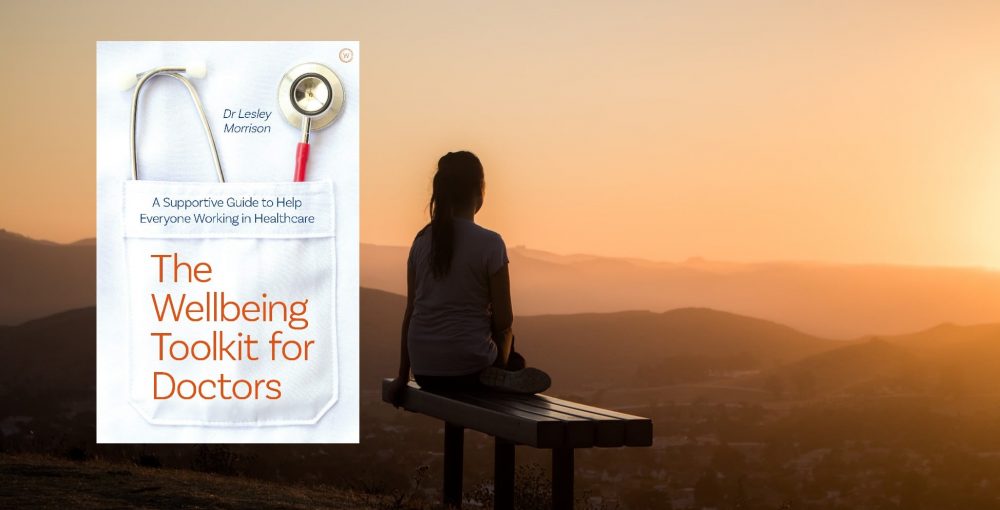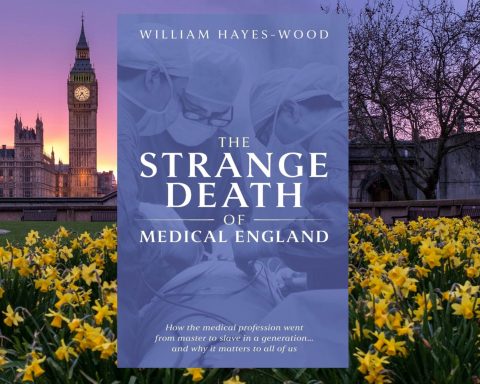 Jonathan Wells is a salaried GP and post-CCT fellow at Haxby Group Practice.
Jonathan Wells is a salaried GP and post-CCT fellow at Haxby Group Practice.
The increasing pressures brought about by the COVID-19 pandemic has brought greater scrutiny and new literature focused on the wellbeing of healthcare professionals. Prior to this, in 2018 the GMC’s report “Caring for doctors, Caring for patients” highlighted the importance of doctor wellbeing on patient care1 and, more recently, the BMA survey on the personal impact of the COVID-19 pandemic on doctors’ wellbeing highlighted that 41% of doctors were suffering with mental health conditions with 29% of them saying this had got worse during the pandemic.2
“The Wellbeing Toolkit for Doctors” is therefore very well timed and, with appraisals now focusing more on wellbeing, would be likely to earn some CPD points as well as providing plenty to consider and reflect upon.
The GMC’s report “Caring for doctors, Caring for patients” highlighted the importance of doctor wellbeing on patient care.
One of the great strengths of this book is Dr Morrison’s use of stories drawn from her own and others’ experience which she uses to illuminate her points and inspire reflection. In particular, the use of experience drawn from healthcare professionals worldwide gave me a sense of gratitude to be working in the UK and admiration for how the global colleagues she has interviewed cope with the challenges they face.
Besides the stories that can be descriptive or illustrative in how to use the tools provided, there are many well-chosen quotes relevant to each chapter. For example, in her chapter on resilience she discusses a doctor, who found comfort in the words of Archbishop Oscar Romero: “We plant a seed that one day will grow. We cannot do everything and there is a sense of liberation in realising that. This enables us to do something and to do it very well”.
This quote resonates on different levels; whether you’re trying to make changes within an organisation or encourage a patient to exercise more, we plant the seed but cannot force the outcome. Reminding myself of this helps to reduce the amount of pressure I put on myself, which in turn has helped my wellbeing. Some tools you can also recommend to patients. For example, the chapter on “Green therapy” highlights the benefits of gardening to many peoples’ wellbeing and I have started recommending patients to reap the combined benefits that come from fresh air, activity, creativity and achievement that stem from gardening.
The BMA survey on the personal impact of the COVID-19 pandemic on doctors’ wellbeing highlighted that 41% of doctors were suffering with mental health conditions.
The strong themes of activism threaded through the book are hard to miss and make me wonder whether this book is particularly aimed at the newer generation of GPs. With important subjects such as climate change and racism and reference to organisations such as Medact, it seems that, whilst all of us regardless of age can have a profound impact, these are important values to instil in the GPs who will become educators themselves and the leaders of tomorrow’s NHS. The point about looking after ourselves by looking after each other (and our planet) is well made and received.
I would recommend reading “The Wellbeing Toolkit for Doctors” to all GPs and medical students or doctors in training, whether they have an interest in general practice or not. However, I would recommend savouring this book and reading perhaps a chapter each week to allow for deeper, more valuable reflection and to give each tool the consideration and practice of use it requires.
References
- https://www.gmc-uk.org/-/media/documents/caring-for-doctors-caring-for-patients_pdf-80706341.pdf
- https://www.bma.org.uk/bma-media-centre/personal-impact-of-the-covid-19-pandemic-on-doctors-wellbeing-revealed-in-major-bma-survey
Featured book
The Wellbeing Toolkit for Doctors: A Supportive Guide to Help Everyone Working in Healthcare. Dr Lesley Morrison. Watkins Publishing. £10.99. ISBN-13 : 978-1786785213
Featured photo by Sage Friedman on Unsplash






